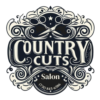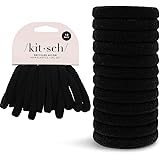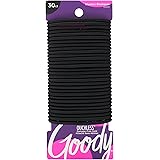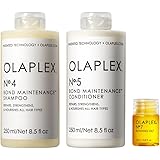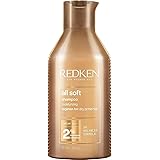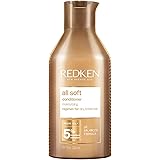Introduction to Hair Oils
Hair oils have become an essential component in many hair care routines, serving as a versatile solution for various hair concerns. These oils are derived from natural sources, often extracted from seeds, nuts, and plants, and are celebrated for their ability to enhance hair health. Incorporating hair oils into one’s regimen can significantly contribute to the overall nourishment and hydration of hair strands, which is crucial for maintaining vibrant and healthy locks.
The importance of hair oils lies in their multifaceted benefits. They act as powerful moisturizers, providing hydration to dry and brittle hair, which may be the result of environmental stressors, chemical treatments, or heat styling. Oils such as argan, coconut, and jojoba are known for their high levels of essential fatty acids and antioxidants. These properties not only help in retaining moisture but also protect the hair from damage caused by free radicals, thus promoting a healthier appearance.
Furthermore, hair oils can improve the manageability of hair, reducing frizz and flyaways. This is particularly beneficial for those with curly or wavy hair types, where taming unruly strands can be challenging. By applying the appropriate oil, individuals can achieve smoother, more manageable hair while also enhancing shine and softness.
Another noteworthy benefit is the ability of hair oils to promote scalp health. A healthy scalp is foundational to hair growth and strength. Oils can nourish the scalp, alleviate dryness, and may even encourage hair follicles to remain active. By providing the necessary nutrients and improving blood circulation, hair oils play a crucial role in fostering an optimal environment for hair growth.
In conclusion, the integration of hair oils into your hair care routine can lead to significant improvements in the health and appearance of your hair. With a wide variety of oils available, individuals can select the ones that best suit their unique hair needs, paving the way for nourished, hydrated, and lustrous hair.
How Hair Oils Work
Hair oils have become an indispensable part of many people’s hair care routines, yet the science behind their efficacy is often misunderstood. Hair oils primarily function by penetrating the hair shaft, delivering essential nutrients, and enhancing moisture retention. When applied to the hair, these oils can improve its texture and overall health, making it appear shinier and more vital.
The key to the effectiveness of hair oils lies in their molecular structure. Many oils, such as coconut oil and argan oil, possess smaller molecules that can easily be absorbed by the hair. This penetration allows the oils to deposit important fatty acids and vitamins directly into the hair follicles. The essential nutrients found in these oils, such as omega-3 fatty acids and vitamin E, are crucial for promoting hair growth and enhancing the natural strength of the hair.
In addition to providing vital nutrients, hair oils play a significant role in moisture retention. Hair is primarily composed of a protein called keratin, which can become dehydrated due to environmental factors and heat styling. By coating the hair shaft, natural oils create a barrier that traps moisture, thus reducing dryness and brittleness. This moisture-locking capability can lead to a noticeable difference in the shine and health of the hair. Moreover, many hair oils have antioxidant properties that help combat damage from free radicals, further promoting healthier hair.
Different oils offer unique benefits; for example, jojoba oil closely mimics the scalp’s natural sebum, making it an excellent option for scalp hydration. Olive oil, on the other hand, is effective for deep conditioning treatments. Ultimately, selecting the appropriate hair oil tailored to one’s hair type and needs can lead to significant improvements in texture and appearance. Through their multifunctional properties, hair oils can be a transformative addition to hair care practices, achieving lustrous locks and improved hair health.
Different Types of Hair Oils
Hair oils have gained popularity for their ability to nourish and enhance hair health. Several types of hair oils are available in the market, each with unique properties and benefits. Understanding these oils can help individuals choose the right one for their specific hair needs.
Coconut oil is one of the most widely used hair oils due to its deep moisturizing properties. Rich in fatty acids, coconut oil penetrates the hair shaft effectively, reducing protein loss and preventing damage. It is especially effective for those with dry or damaged hair, promoting overall shine and softness.
Argan oil, derived from the nuts of the argan tree, is often referred to as “liquid gold”. High in essential fatty acids and vitamin E, argan oil hydrates and nourishes hair, making it an excellent choice for dry and frizzy hair types. Its lightweight formula ensures that it can be used without weighing down the hair, providing a smooth and shiny finish.
Jojoba oil mimics the natural oils produced by the scalp, making it highly effective for maintaining moisture balance. This oil is ideal for those with oily hair, as it helps regulate sebum production while providing essential nutrients. Jojoba oil is also known for its soothing properties, helping to maintain a healthy scalp.
Olive oil is another popular option, known for its rich antioxidants and healthy fats. It can deeply condition hair, making it particularly suitable for dry and damaged strands. Regular use of olive oil can help improve hair elasticity and strength, making it less prone to breakage.
Lastly, castor oil is renowned for its ability to promote hair growth. Its high ricinoleic acid content boosts circulation to the scalp and nourishes hair follicles. This oil is often used as a remedy for thinning hair, with many users reporting noticeable improvements in hair density over time. Each of these oils can be tailored to individual hair types, ensuring that everyone can find the perfect product for optimal hair health.
Benefits of Using Hair Oils
Incorporating hair oils into one’s hair care regimen provides numerous advantages that contribute to healthier and more vibrant locks. One prominent benefit is the promotion of hair growth. Many hair oils are rich in essential nutrients and fatty acids that nourish the scalp, fostering a healthy environment for hair follicles. Oils such as castor oil are particularly noted for their ability to stimulate hair growth by increasing blood circulation to the scalp. This enhanced circulation may assist in the delivery of vital nutrients, promoting stronger and thicker hair over time.
Another significant advantage is the reduction of frizz. Hair oils work by smoothing the hair cuticle, thereby creating a protective barrier against environmental factors that contribute to frizz and split ends. Oils like argan and jojoba provide long-lasting moisture that helps tame unruly strands, making hair more manageable. These oils seal in hydration, which can significantly improve hair texture, giving rise to a sleek appearance.
Preventing damage is yet another critical benefit of using hair oils. Regular application can guard against the harmful effects of heat styling and environmental stressors. Coconut oil, for instance, is renowned for its ability to penetrate the hair shaft, reducing protein loss and protecting hair from damage. This preventive measure ensures that hair remains resilient and less prone to breakage, contributing to overall hair health.
Finally, hair oils can enhance the overall appearance of hair, imparting a natural shine and luster that reflects vitality. When used as part of a daily regimen, oils can transform dull, lifeless hair into a more radiant and attractive mane. By leveraging the nourishing properties of different oils, individuals can achieve a significant improvement in the quality and condition of their hair, allowing it to be a true reflection of health and beauty.
How to Choose the Right Hair Oil for Your Hair Type
Selecting the appropriate hair oil is crucial for maintaining healthy and vibrant hair, as different hair types have distinct needs. Whether your hair is straight, wavy, curly, or coily, understanding your specific hair texture is the first step in making an informed choice.
For individuals with straight hair, lighter oils such as argan oil or jojoba oil work best. These oils penetrate the hair shaft effectively without weighing down the hair, providing essential moisture while maintaining its natural volume. It is advisable to apply a small amount to the ends to avoid greasiness.
Wavy hair often benefits from oils that enhance texture and combat frizz. Coconut oil is highly effective for this hair type, as it provides deep conditioning and adds shine. Additionally, oils like almond oil or avocado oil can be excellent choices for hydrating and defining waves. When using oil on wavy hair, aim to apply it mid-length to the ends to preserve the natural wave pattern.
Curly hair typically requires more moisture and nourishment, making heavier oils a suitable option. Olive oil and castor oil can penetrate the curls, reducing breakage and improving manageability. Layering products is also recommended for this hair type, so combining a heavier oil with a lighter one can yield optimal results. Make sure to apply oil evenly throughout the curls to lock in moisture.
Coily hair is often the driest and most fragile, necessitating the use of rich, penetrating oils. Choices such as grapeseed oil or shea oil provide intense hydration, helping to seal in moisture and promote elasticity. It is advisable to use these oils generously, concentrating on the entire hair shaft and scalp to encourage healthy growth.
In conclusion, understanding your hair type is essential for selecting the right hair oil. By focusing on the specific needs of straight, wavy, curly, or coily hair, one can invest in products that promote overall hair health and vitality.
DIY Hair Oil Blends
Creating your own hair oil blends can be a rewarding and effective way to nourish your hair while targeting specific concerns. By utilizing a combination of carrier oils and essential oils, you can customize blends that address dryness, frizz, scalp health, and more. Here are some popular carrier oils and essential oils to consider:
Carrier oils serve as the base for your concoction and offer various benefits. For example, coconut oil is renowned for its ability to penetrate hair shafts and reduce protein loss, making it ideal for damaged hair. Argan oil, known for its moisturizing properties, can help tame frizzy hair and improve overall luster. Jojoba oil closely resembles the natural oils produced by the scalp, making it great for balancing oil levels without clogging pores.
Essential oils can enhance your blend with their unique therapeutic properties. Lavender essential oil can promote relaxation and support scalp health, while peppermint oil may stimulate hair growth by increasing blood circulation to the scalp. Tea tree oil is excellent for addressing dandruff and maintaining a healthy scalp environment.
To create a basic DIY hair oil blend, you will need the following ingredients:
- 2 tablespoons of your chosen carrier oil (e.g., coconut, argan, or jojoba)
- 5-10 drops of essential oil (e.g., lavender, peppermint, or tea tree)
To prepare the blend, combine the carrier oil and essential oil in a small glass bottle. Shake well to mix the ingredients thoroughly. For best results, apply the blend to your hair and scalp, massaging gently. You can leave it in for at least 30 minutes before washing it out with a mild shampoo. This process nourishes your hair and scalp, promoting healthier locks over time. Experiment with different ratios and ingredients to find the perfect blend for your unique hair type and concerns.
Best Hair Oils for Dry Hair
Dry hair is a common issue that can lead to a variety of problems such as breakage, frizz, and dullness. To combat these concerns, using the right hair oils can provide essential moisture and nourishment, helping to restore the hair’s natural shine and vitality. Several hair oils are particularly well-suited for addressing dryness, each with unique properties that contribute to effective hydration.
Argan oil, derived from the nuts of the Argan tree, is renowned for its high content of essential fatty acids and vitamin E. This oil not only penetrates the hair shaft to provide deep hydration but also helps to strengthen hair and reduce frizz. For optimal results, apply a few drops to damp hair, focusing on the ends, before styling. This method helps lock in moisture and maintains a sleek appearance throughout the day.
Coconut oil is another excellent choice for dry hair. Rich in medium-chain fatty acids, it has the ability to penetrate deeply into the hair cuticles, offering intensive nourishment. To use, warm a tablespoon of coconut oil and massage it into the scalp and hair, allowing it to sit for at least 30 minutes before washing out with shampoo. This treatment can be repeated once a week for best results.
Jojoba oil closely resembles the natural oils produced by our scalp, making it an beneficial option for providing dryness relief. It helps balance oil production while delivering moisture to parched strands. It can be applied directly to damp or dry hair to enhance shine and softness without weighing the hair down.
Lastly, olive oil is revered for its conditioning properties. Rich in antioxidants and vitamins, it enhances hair texture and combats dryness effectively. Using it as a pre-wash treatment or a leave-in conditioner can result in softer, more manageable hair. Combining these oils and tailoring their usage based on individual hair needs can greatly improve the overall health and appearance of dry hair.
Best Hair Oils for Oily Hair
Oily hair can present unique challenges in maintaining a healthy and nourished appearance. The use of hair oils can be beneficial, but choosing the right lightweight oils is critical to avoid adding excess weight and grease. Ideal hair oils for oily hair types provide nourishment without overwhelming the scalp’s natural oils or contributing to a greasy build-up. These oils not only help in conditioning the strands but also promote overall hair health more effectively.
One of the best options for oily hair is jojoba oil. Its molecular structure closely resembles sebum, the natural oil produced by the scalp, making it highly effective in regulating oil production. By applying a small amount of jojoba oil, you can moisturize your hair without the risk of over-saturating it. Additionally, its lightweight composition allows it to be easily absorbed, leaving your hair feeling soft and rejuvenated.
Another excellent choice is argan oil. Known for its nourishing properties, argan oil penetrates the hair shaft effectively and helps to tame frizz, promoting a sleek appearance. A few drops of this oil can be applied to damp hair, focusing on the ends to prevent dryness while ensuring that the roots remain light and manageable.
For those looking for a more herbal option, grape seed oil is also noteworthy. It is known for being non-greasy and has moisturizing properties that can enhance shine without weighing the hair down. When using grape seed oil, apply a small amount to the mid-lengths and ends of your hair to maintain a balanced moisture level.
Ensuring effective application techniques is essential for achieving the desired results. When using any hair oil, it is advisable to start with a small quantity to assess how your hair reacts. For best results, consider applying oil to damp hair and utilizing it as part of your regular hair care routine. This can enhance your overall hair health while managing oiliness effectively.
Best Hair Oils for Hair Growth
When it comes to promoting hair growth, certain hair oils have gained recognition for their nourishing properties and ability to stimulate the scalp. These oils are often rich in vitamins, essential fatty acids, and antioxidants, contributing significantly to hair health. The use of these oils can lead to stronger hair follicles and, consequently, improved hair growth.
One of the most popular hair oils for stimulating growth is castor oil. Known for its high ricinoleic acid content, castor oil enhances blood circulation to the scalp, which can help deliver more nutrients to hair follicles. Additionally, it possesses antibacterial and antifungal properties, ensuring a healthy scalp environment. Many users report considerable improvements in hair thickness and volume after consistent use of castor oil.
Another effective option is rosemary oil, which has been clinically shown to encourage hair growth over time. Its natural compounds work to increase circulation and stimulate hair follicles, making it a common ingredient in commercial hair growth products. When diluted with a carrier oil, rosemary oil can be massaged directly into the scalp for optimal results.
In addition to these, argan oil is often highlighted for its moisturizing and nourishing qualities. Rich in vitamin E and fatty acids, argan oil not only strengthens hair but also helps prevent breakage, making it an excellent choice for those looking to enhance overall hair quality while promoting growth.
For a more intensive growth routine, consider a blend of hair oils. Products like the Mielle Organics Rosemary Mint Scalp & Hair Oil combine multiple ingredients known for their efficacy in stimulating growth, offering a comprehensive approach to hair care. Regular application of these oils can lead to visible improvements not only in hair growth but also in the health and vitality of the hair.
Best Hair Oils for Strengthening Hair
Hair oils play a crucial role in enhancing the overall health and strength of hair strands. Many individuals face challenges such as breakage and split ends, making it essential to incorporate nourishing hair oils into their hair care routine. These oils not only provide moisture but also work to fortify hair fibers, resulting in stronger, healthier hair.
One of the most effective oils for strengthening hair is castor oil, known for its high ricinoleic acid content, which promotes blood circulation in the scalp. This enhanced circulation can boost hair growth while simultaneously providing necessary hydration, thus reducing the risk of breakage. For those seeking a lighter option, argan oil serves as a wonderful alternative. It is rich in vitamin E and essential fatty acids, both of which are vital for maintaining hair elasticity and reducing the likelihood of damage.
Coconut oil is another powerhouse in the realm of strengthening hair oils. Its unique structure allows it to penetrate the hair shaft deeply, providing moisture and reducing protein loss during washing. This property is particularly beneficial for individuals with dry or damaged hair, as it helps restore their natural shine and resilience. Jojoba oil, with its close resemblance to sebum, offers additional nourishment and is suitable for all hair types, making it an ideal choice for those with oily scalps.
Additionally, almond oil deserves mention as it is packed with nutrients that help to fortify the hair and promote overall health. Regular application of these oils not only enhances hair strength but also improves its texture and reduces frizz. Therefore, integrating these specific oils into a consistent hair care regimen can yield significant benefits, ensuring that individuals maintain strong, resilient hair that stands the test of time. In conclusion, selecting the right hair oil can markedly improve hair strength and reduce breakage, leading to healthier, more vibrant locks.
Using Hair Oils in Your Routine
Incorporating hair oils into your hair care routine can significantly enhance the health and appearance of your hair. To maximize the benefits, it is essential to understand the best practices for application and frequency of use. Begin by selecting a hair oil that aligns with your hair type and condition; options such as argan oil, coconut oil, and jojoba oil cater to various needs, from hydration to damage repair.
For effective application, start with clean, dry or slightly damp hair. Take a small amount of oil, approximately a dime-sized amount, between your palms and warm it up to facilitate absorption. Distribute the oil evenly throughout your hair, focusing on the mid-lengths and ends, as these areas tend to be drier and more prone to damage. Avoid applying excessive amounts to the roots, as this may lead to an oily scalp and weigh down your hair.
In terms of how often to use hair oils, this can vary based on individual requirements. For those with fine or oily hair, applying hair oil once a week may suffice, while individuals with thicker or drier hair might benefit from two to three applications per week. Additionally, consider using hair oils as a pre-shampoo treatment to minimize damage and enhance moisture retention.
Incorporating hair oils into your styling routine is also advantageous. You can use a small amount of oil to tame frizz and add shine after styling. This not only improves your hair’s finish but also provides ongoing nourishment throughout the day.
Overall, the key to effectively using hair oils in your routine lies in understanding your hair’s specific needs and adjusting the application techniques and frequency accordingly. By doing so, you will ensure that your hair receives optimal benefits, leading to improved health and vitality.
The Role of Essential Oils in Hair Care
Essential oils have gained significant recognition in the realm of hair care due to their numerous benefits, offering a natural remedy for various hair concerns. These concentrated plant extracts possess unique properties that can nourish, strengthen, and rejuvenate hair. When combined with carrier oils, essential oils can create powerful formulations that enhance hair health and overall appearance.
One of the key advantages of using essential oils is their ability to stimulate hair growth. Oils such as rosemary, peppermint, and lavender are particularly noted for their effectiveness in promoting a healthy scalp and encouraging hair follicles’ activity. For instance, rosemary essential oil is rich in antioxidants, which can combat hair thinning and improve blood circulation to the scalp. Similarly, peppermint oil provides a refreshing sensation and may help alleviate dryness and itchiness.
Moreover, essential oils like tea tree and chamomile are known for their antimicrobial properties, making them ideal for those suffering from dandruff or scalp irritation. Tea tree oil can effectively reduce itchiness and flakiness, while chamomile oil helps calm and hydrate the scalp, contributing to overall hair health.
When incorporating essential oils into hair care regimens, it is vital to use them safely. Diluting essential oils in a carrier oil, such as coconut, jojoba, or argan oil, before applying them to the hair and scalp is crucial. This not only prevents skin irritation but also enhances the absorption of the beneficial properties of essential oils. A general guideline is to mix three to five drops of essential oil with one tablespoon of carrier oil before application.
In conclusion, essential oils play a significant role in hair care, offering numerous benefits when used appropriately. Their ability to promote growth, fight dandruff, and nourish the scalp makes them a valuable addition to any hair care routine. By understanding how to mix and apply these potent oils safely, individuals can unlock the full potential of their hair’s natural vitality.
Common Myths About Hair Oils
Hair oils have become a popular choice for many seeking to enhance the health and appearance of their hair. However, several misconceptions persist regarding their use. One prevalent myth is that applying oil to hair makes it excessively greasy and unmanageable. In reality, when used appropriately, hair oils can provide nourishment without leaving a heavy residue. The key is to select the right type of oil for your hair type and to use it in moderation. For instance, lighter oils like argan or jojoba can be used as leave-in treatments, adding shine without the greasy feel.
Another common misunderstanding is the belief that oiling one’s hair can lead to build-up, which in turn can damage hair follicles. In fact, oils, especially those that are non-comedogenic, can help to cleanse the scalp by attracting dirt and product build-up, making it easier to wash away. Additionally, many hair oils possess properties that support scalp health, as they can provide essential nutrients and promote blood circulation. This can actually boost hair growth rather than hinder it.
Furthermore, some individuals think that using hair oils is unnecessary, particularly if they have oily hair. This is a significant misconception, as all hair types can benefit from the right oil. Oiling can help balance moisture levels and render hair more resistant to environmental stresses. Finally, the idea that oiling hair is only beneficial for those with ethnic or curly hair is another myth; people with straight or wavy hair can also reap the benefits when they choose the appropriate oil and application method.
Understanding these myths is crucial in utilizing hair oils effectively. By embracing the true benefits and dispelling misconceptions, individuals can make informed choices to nourish and revitalize their hair.
Hair Oils and Scalp Health
The health of the scalp is integral to maintaining vibrant and strong hair. Hair oils play a crucial role in nurturing the scalp, offering a plethora of benefits that promote overall hair wellness. One of the primary advantages of incorporating hair oils into a hair care routine is their ability to combat dryness. Many individuals experience a flaky and itchy scalp, often exacerbated by environmental factors or the use of harsh hair products. Rich in essential fatty acids and nutrients, hair oils can deeply moisturize the scalp, alleviating discomfort and restoring balance.
Furthermore, hair oils are beneficial for individuals dealing with dandruff, a common scalp condition characterized by the shedding of dead skin cells. Certain oils possess anti-fungal properties that help in reducing the proliferation of yeast-like fungi, which can lead to dandruff. By regularly applying nourishing oils such as tea tree or coconut oil, one may see a significant reduction in flakiness and irritation, leading to a healthier scalp.
In addition to combating dryness and dandruff, hair oils can soothe scalp irritation caused by various factors, including chemical treatments or environmental damage. Oils such as jojoba and argan oil are known for their anti-inflammatory properties, which can assist in calming an irritated scalp. To maximize the benefits of hair oils, proper application techniques are important. It is advisable to perform a gentle massage when applying the oil, as this not only enhances absorption but also improves blood circulation to the hair follicles, thus promoting healthy hair growth.
In conclusion, utilizing hair oils can significantly improve scalp health by addressing prevalent issues such as dryness, dandruff, and irritation. When chosen and applied correctly, these oils deliver essential nutrients that benefit both the scalp and the hair, leading to a more nourished and radiant appearance.
Hair Oils for Different Hair Conditions
Hair oils serve as a potent solution for various hair conditions, offering targeted nourishment and care. Each hair issue may benefit from different types of oils tailored to its unique needs. For instance, individuals battling split ends often find relief with the use of nourishing oils such as argan or castor oil. Argan oil, known for its rich fatty acid profile, helps to restore moisture and elasticity, effectively reducing the appearance of split ends while promoting overall hair health.
Damaged hair requires a concentrated effort to repair and revitalize. Coconut oil emerges as a prominent contender due to its deep penetration capabilities, allowing it to access the hair shaft and restore lost moisture. Additionally, the protein-loving composition of coconut oil aids in reducing protein loss, which is crucial for maintaining healthy hair. For optimal results, individuals may consider incorporating deep-conditioning treatments formulated with coconut oil into their weekly hair care routine.
Color-treated hair often suffers from dryness and frizz due to chemical processing. To combat this, jojoba oil proves to be an excellent choice. Jojoba oil closely resembles the natural oils produced by the scalp, making it a suitable moisturizer that helps in maintaining color vibrancy. It not only nourishes and hydrates the hair but also protects it from external environmental stressors. Another effective option is almond oil, which is renowned for its ability to soften hair while managing color-treated strands effectively.
Ultimately, selecting the right hair oil can significantly improve the condition of your hair. Each type of oil presents its unique benefits tailored to address specific problems such as split ends, damage, or color treatment. By integrating these oils into your hair care regimen, you can promote healthier, more resilient hair tailored to your individual needs.
Celebrity Favorites: Hair Oils Used by the Stars
In the world of hair care, celebrities often set trends, and one area where they lead the charge is the use of hair oils. These product aficionados frequently share their must-have oils for maintaining luscious locks, leading fans to explore the benefits of these nourishing elixirs. Many stars now integrate hair oils into their daily routines, revealing the personal touch behind their glamorous looks.
One of the most talked-about hair oils in celebrity circles is Moroccan argan oil. Known for its lightweight texture, it provides deep hydration without weighing the hair down. Renowned actress and producer Jennifer Aniston has been vocal about her love for this oil, declaring it a staple in her hair care regimen. She often applies a few drops of argan oil to her damp hair, allowing it to absorb while she styles her hair, thus achieving a glossy finish accompanied by manageable waves.
Another popular choice among stars is coconut oil, praised for its versatility and nourishing properties. Influencer and actress Chrissy Teigen has openly shared her routine, highlighting how she uses coconut oil not only for her hair but also as a skin moisturizer. Teigen recommends applying it as an overnight treatment, wrapping her hair in a silk scarf to lock in moisture and wake up with revitalized strands.
Additionally, the use of jojoba oil has gained traction, with celebrities like Blake Lively championing its benefits. Jojoba oil closely resembles the natural sebum produced by the scalp, making it an excellent choice for nourishing both hair and scalp. Lively incorporates it into her post-shower routine, massaging it into her roots to enhance shine and combat dryness.
These celebrity favorites illustrate the diverse range of hair oils that can effectively nourish and protect hair. By adopting some of these practices, fans can achieve softer, healthier hair that glimmers with the same vitality seen on their favorite stars.
Sustainable and Organic Hair Oils
The growing awareness of environmental issues has made sustainable and organic hair oils a popular choice among consumers. These hair oils are derived from natural sources, ensuring that they are free from harmful chemicals and synthetic additives. By opting for sustainably sourced products, consumers not only promote their own health but also contribute positively to the environment. Organic hair oils are produced using farming practices that avoid the use of pesticides and herbicides, enhancing the purity and effectiveness of the oils.
One of the key benefits of utilizing sustainable and organic hair oils is their ability to nourish the hair deeply. Unlike conventional hair oils, which may contain fillers and synthetic ingredients, organic oils retain their natural properties, providing vital nutrients that help maintain healthy hair. Oils such as argan, jojoba, and coconut are rich in essential fatty acids and vitamins, promoting shine and reducing frizz. Furthermore, these hair oils can be absorbed more easily, resulting in better hydration and overall hair health.
Several brands stand out in the realm of sustainable and organic hair oils. For example, Rahua is renowned for its commitment to eco-friendly practices, sourcing ingredients from the Amazon rainforest while ensuring fair-trade practices for local communities. Jojoba Oil from Desert Essence is another excellent choice; it’s 100% pure and distilled from organic sources, making it a great option for those seeking ethical and natural hair care solutions. Additionally, 100% Pure offers a range of organic oils infused with botanical extracts to provide nourishment for various hair types.
Investing in sustainable and organic hair oils not only enhances the health and appearance of your hair but also supports a more environmentally conscious approach to beauty. By making informed choices, consumers can enjoy the benefits of nourishing hair care while actively participating in the movement towards sustainability.
Cost-Effective Alternatives to High-End Hair Oils
While high-end hair oils often come with a luxurious appeal, there are budget-friendly alternatives available that provide similar benefits without compromising quality. Many drugstores offer an impressive range of hair oils, suitable for various hair types and needs, offering nourishment and hydration at an affordable price.
One popular option is argan oil, often referred to as “liquid gold.” Various drugstore brands now provide this nutrient-rich oil that helps in moisturizing and repairing damaged hair. Its high content of vitamin E and fatty acids makes it beneficial for enhancing shine and reducing frizz. Another excellent alternative is coconut oil. This versatile oil can be found in many drugstores and is praised for its ability to penetrate the hair shaft, providing deep conditioning and moisture. Coconut oil is suitable for all hair types, making it an ideal choice for those seeking a cost-effective solution to improve hair health.
Additionally, jojoba oil is a fantastic option that closely resembles the natural oils produced by the scalp. Several budget brands offer jojoba oil, which can help balance oil production and keep the hair moisturized without making it greasy. For individuals looking for a lighter oil, grapeseed oil is another choice available at affordable prices. This oil is rich in antioxidants and acts as an excellent leave-in treatment, offering protection against heat damage while maintaining moisture levels.
Many drugstore hair oil products promise to achieve salon-like results without breaking the bank. By exploring these cost-effective alternatives, consumers can nourish their hair, retain its vitality, and enjoy healthy locks while adhering to a reasonable budget. With various options available, individuals can find the perfect product that meets their hair care needs without compromising on quality or effectiveness.
Conclusion: Embracing Hair Oils for Healthy Hair
In the pursuit of achieving and maintaining healthy hair, the incorporation of hair oils into your hair care regimen can make a significant difference. Throughout this guide, we have explored various types of hair oils, each offering unique benefits tailored to different hair types and concerns. From nourishing coconut oil to revitalizing argan oil, the options available allow individuals to find the perfect match for their specific hair needs.
Hair oils not only nourish and moisturize, but they also provide essential nutrients that contribute to overall hair health. They help in reducing hair breakage, split ends, and frizz while enhancing shine and manageability. The consistent use of hair oils can also improve the scalp’s condition, promoting a healthy environment for hair growth. This multifaceted approach highlights the importance of selecting the right oil based on one’s hair texture and styling practices.
Moreover, the incorporation of hair oils into your routine can be a simple yet impactful change. Whether you opt for deep conditioning treatments or daily hair oiling, these methods can lead to noticeable improvements in texture and shine. By being mindful of how you integrate hair oils into your regimen, you can achieve softer, healthier, and more vibrant hair. As you consider the various options available, remember that selecting the appropriate oil tailored to your individual needs is crucial for optimal benefits.
Ultimately, embracing hair oils as a fundamental aspect of your hair care routine is a step towards achieving the luscious locks you desire. With so many choices at your disposal, taking the time to explore and find the right hair oil can enhance both your hair’s health and your overall look.
